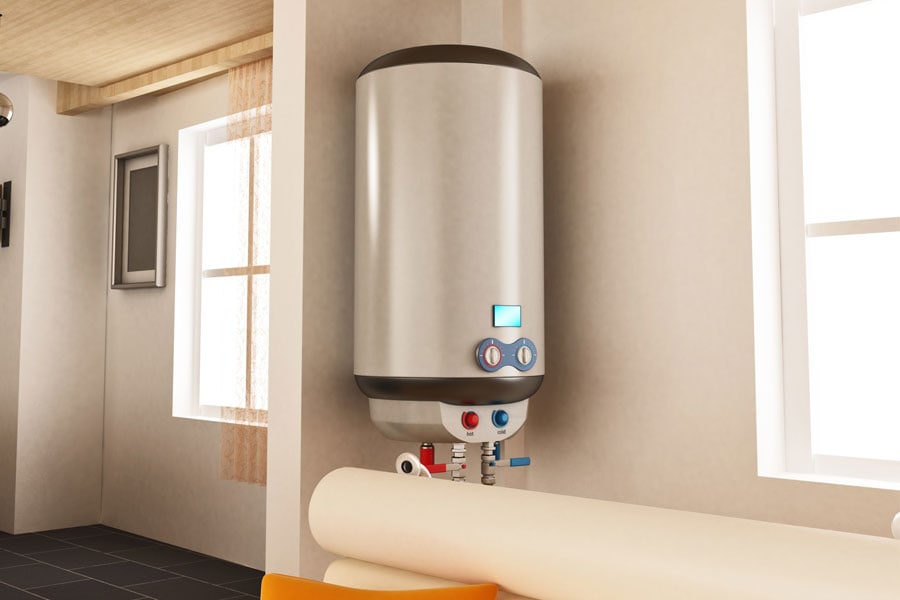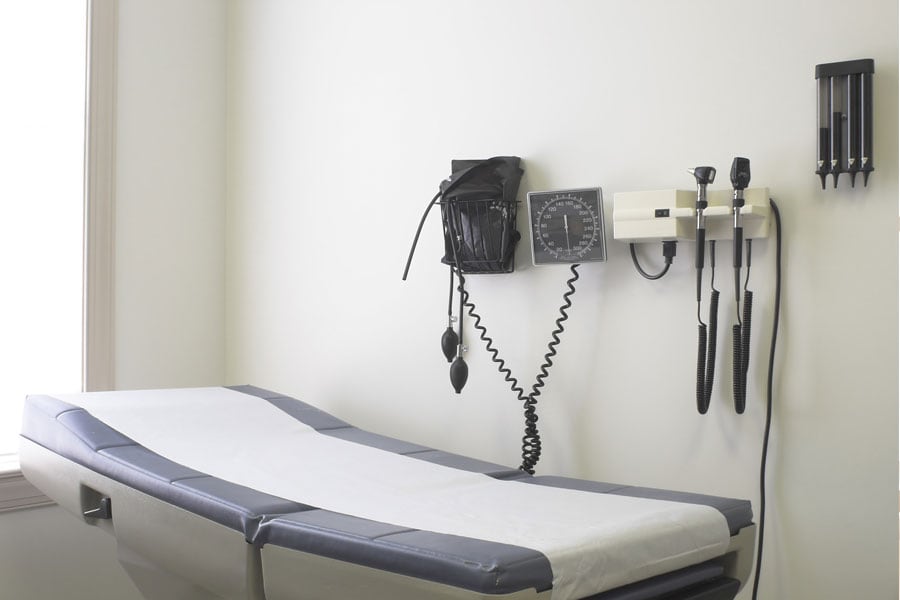
Did you know that in 2021, the electric water heater market was worth USD 23.6 billion?
Nobody wants to know that their water heater will need to be replaced soon. Water heaters are not cheap, especially when you need the whole thing replaced, and they do not last forever.
Luckily, there are a handful of signs that you can pay attention to when it is time to install a new one. Read on to learn when to replace a new water heater.
Need a New Water Heater
Extensive Leaks
If you’re dealing with extensive leaks, it’s time for hot water tank replacement. These leaks can cause severe damage to your home and your personal belongings. If you have a leaking water heater, it’s essential to shut off the water supply to the unit and call a professional as soon as possible.
You might not be able to see the leaks, but you’ll be able to see the damage they’re causing to your home. A new water heater will be able to give you the hot water you need without the leaks.
Frequent Repairs
If you’re frequently repairing your water heater, it’s a sign you need a new one. The water heater should last about 10-15 years before needing to be replaced. If you’re repairing it multiple times a year, it’s inefficient, and you’re spending more on repairs than on a new water heater.
New water heaters are more energy-efficient, saving you money on your energy bill. They’re also made with safer materials and have better safety features. In addition, if your water heater is over ten years old, it may not be as safe as newer models.
Rusty Colored Water
While rust-colored water is not necessarily a sign that your water heater is about to fail, it indicates a problem. If your water heater is beginning to rust, it is likely nearing the end of its lifespan. If your water heater is only a few years old and already deteriorating, likely, it was not made with high-quality materials.
If your water heater is over a decade old, it is time for a replacement. Not only is rust unsightly, but it can also cause your water to taste metallic. If you notice your water heater rusting, call a plumber to inspect it and determine if you need a new one.
Odd Noises
If you notice a knocking, banging, or popping sound coming from your water heater, it could be a sign that the unit is starting to fail. These sounds are usually caused by sediments that have built up inside the tank and are now disintegrating, which can create severe damage if left untreated. If you hear any of these noises, call a professional for an inspection and replacement as soon as possible.
The most common noise is a rumbling or popping sound caused by sediment buildup on the bottom of the tank. If you hear this noise, a professional must inspect the water heater to determine if it needs to be replaced.
Another common noise is a hissing sound, which is caused by a leak in the tank. If you hear this noise, a professional must inspect the water heater to determine if it needs to be replaced.
Amount of Water Heater Usage
If you find yourself running out of hot water more frequently than you used to, it could signify that you need a new water heater. If you have a family of four and everyone is taking showers, doing laundry, and doing dishes every day, you will need a water heater to accommodate that usage.
The average water heater lasts between 8 and 12 years, so if yours is nearing the end of that lifespan, it may be time for a new one. If you are looking for a hot water tank, visit https://www.qbicheating.co.uk/water-heaters.
Sediment at the Bottom of Your Water Heater
If you notice sediment at the bottom of your water heater, it may signify that you need a new water heater. Over time, sediment can build up in the bottom of the tank and cause the water heater to work less efficiently.
The sediment is a sign of corrosion and can cause the water heater to leak or even burst. If you see a deposit at the bottom of your water heater, it is best to replace it as soon as possible.
Additionally, sediment can eventually clog the drain valve, making it difficult to drain the tank. If you notice that your water heater is not heating water as well as it used to, or if the tank is taking longer to drain, it may be time to replace it.
Strange Smells
If your water heater is emitting strange smells, it’s likely a sign that it needs to be replaced. The most common cause of foul-smelling water is bacteria growth, which can occur when the water heater isn’t properly maintained.
Other causes of smelly water may include corrosion of the metal tank, anode rod, or sediments that have built up over time. If you notice any strange smells coming from your water heater, it’s best to contact a plumber or water heater specialist to have it checked out.
Thermostat Problems
The thermostat is responsible for regulating the water temperature, so if it’s not working correctly, the water in your home could be too hot or too cold. If your water heater is having trouble keeping the water at a consistent temperature, it’s a good idea to call a plumber to look at it.
If your water heater’s thermostat is not working correctly, it can cause various problems. The most obvious problem is that the water will not be heated to the proper temperature.
This can lead to lukewarm or cold water if the thermostat is too low. A failing thermostat can also cause the water heater to overheat, leading to a danger of scalding or fires.
There are a few other signs that you might need a new water heater, such as if your water heater is making strange noises or leaking water.
Poor Water Quality
If you have noticed that the water quality from your tap has declined, it could be a sign that you need a new water heater. If the water is cloudy or has a strange odor, this is a definite sign that something is wrong with your water heater.
Another sign of a problem is if the water is not as hot as it used to be. Finally, if you see higher-than-average water bills, this could be due to a water heater that is not operating efficiently. If you are experiencing any of these problems, it is best to call a plumber to have your water heater checked out.
Corroded Fittings
Corroded fittings are one of the signs you need a new water heater. Even if your water heater appears to function normally, small leaks can form at the fittings and cause severe damage to your home.
If you have noticed your water heater fittings are corroded, it is a sign that you need a new water heater. Corroded fittings can cause your water heater to leak, and leaks can lead to water damage and mold growth. If you have noticed any leaks, or if your water heater is more than ten years old, it is time to replace it.
Inexplicable Rising Energy Costs
If you inexplicably see a rise in energy costs, it could be due to an old and inefficient water heater. 20% of a home’s energy usage goes towards heating water, so it’s essential to have a water heater that is in good condition.
Everyone fears getting their energy bill each month, and it doesn’t get much better when an old water heater uses a lot more energy than necessary for reasons you can’t explain. Your water heater may be to blame if you notice that your energy costs are significantly greater than usual and you’re stumped as to why.
Older or inefficient burners consume more gas than necessary to heat your water. Electric water heaters with worn-out heating elements will work hard and drink a lot of energy to heat your water. While these issues can sometimes be fixed, there may come a point when replacement is the wisest course of action.
Plan Ahead for a New Water Heater
There are several signs that you need a new water heater. A new water heater can provide many benefits, including improved energy efficiency and cost savings.
If you’re experiencing any of the signs mentioned in this article, then it’s time for you to invest in a new water heater. Don’t wait until your water heater completely breaks down before taking action. By then, it would be too late, and you would have to deal with the consequences. Do yourself a favor and get a new water heater as soon as possible.
For more helpful information, check out our site today.







